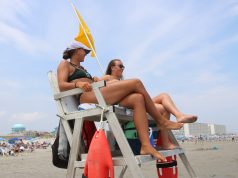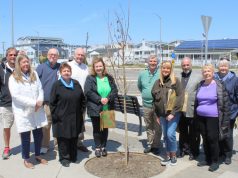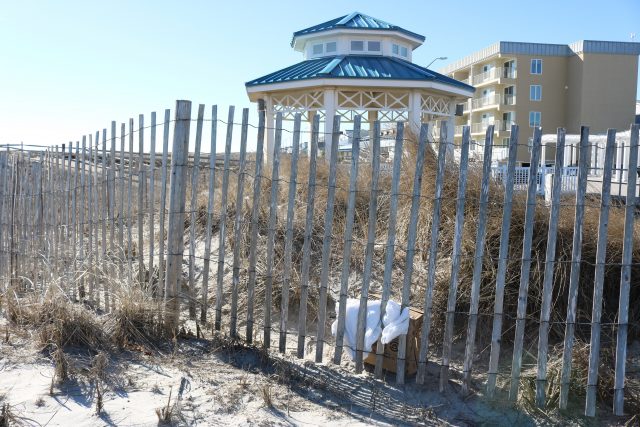
By Donald Wittkowski
J.B. Feeley is tired of seeing windblown plastic bags flying down the streets of Sea Isle City, littering the beaches and floating in the bay or ocean.
The Sea Isle councilman wants to get rid of what he calls an environmental “scourge” by banning single-use plastic bags in the ecologically fragile shore town.
“We’re a barrier island. We’re the front line, and we need to do something about it,” Feeley said during Tuesday’s City Council meeting.
He urged his fellow Council members to support his proposal for an environmentally friendly ordinance that would impose a complete ban on the sale or distribution of plastic carry-out bags now common at food stores and other retail shops.
“In a lot of cases around here, they’re blown down the streets, they’re in the bay, they’re in the ocean, they’re hanging from trees,” Feeley said of discarded bags.
The Council members seemed somewhat receptive to Feeley’s proposal, agreeing to let the matter go forward for the drafting of a proposed ordinance. Councilwoman Mary Tighe raised some concerns, but said she would support whatever the rest of the governing body ultimately decides.
“I’m not a big supporter of banning bags,” Tighe said, noting that she would prefer for the city to have an educational campaign that stresses the benefits of recycling and reusable bags.
Agreeing with Feeley, Mayor Leonard Desiderio said a plastic bag ban seems to be a progressive way to cut down on litter and protect the environment in the future.
“To get ahead of the curve, it’s the thing to do,” Desiderio told Council.

Feeley wants to see a plastic bag ban go in effect on Jan. 1, 2020, giving local stores plenty of time to prepare for the new law.
The neighboring shore towns of Avalon and Stone Harbor have already adopted ordinances banning single-use plastic bags and plastic foam food containers. Their bans take effect on June 1.
Feeley, who brought copies of the Avalon and Stone Harbor ordinances to the Council meeting, said those laws might be used as a model for a similar measure in Sea Isle.
He acknowledged that detractors would likely “moan and groan” over a ban on plastic bags, but drew parallels with the way recycling laws initially were greeted with opposition years ago before they became widely accepted.
On average, one person uses 500 disposable plastic bags per year. In New Jersey alone, 4 billion single-use bags are used annually and only 5 percent of them are recycled, Feeley said.
New Jersey lawmakers and Gov. Phil Murphy have not yet been able to agree on state legislation to ban plastic bags. Murphy vetoed one bill that would have placed fees on single-use bags, calling on the Legislature to approve stricter regulations.
Pending legislation to ban single-use plastic shopping bags, plastic straws and polystyrene food containers has been stuck at the committee level in the Statehouse, according to news reports.
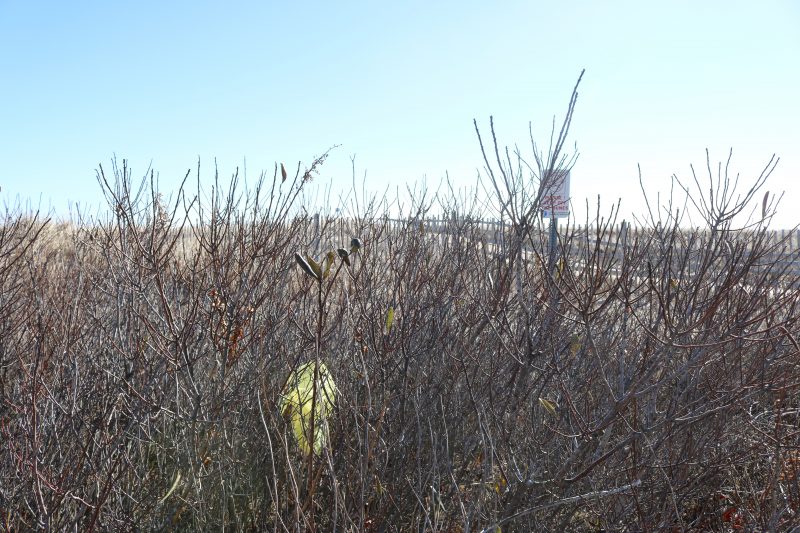
Some New Jersey communities have approved their own ordinances imposing fees on plastic bags – instead of an outright ban – to try to discourage their use. Feeley and Desiderio are against having businesses charge bag fees on their customers.
“It’s a task, and it doesn’t accomplish the goal of getting rid of the bags,” Feeley explained of the potential complications of collecting fees.
If Sea Isle does ban plastic bags, paper bags and reusable bags would take their place in local businesses. Feeley noted that paper bags were once widely used before plastic carry-out bags became more popular.
“Most of our lives we didn’t have the plastic bags. So it’s not something we can’t live without,” he said.
During Sea Isle’s annual fall beach cleanup, plastic waste accounted for 79 percent of the 6,580 pieces of trash and litter that were picked up, according to a report by the city’s Environmental Commission.
The trash included plastic bags, bottles, food and candy wrappers, caps and lids and straws. Plastic cigarette filters represented the single-biggest source of trash on the beaches. Volunteers picked up a total of 1,124 cigarette butts during the cleanup, the report said.
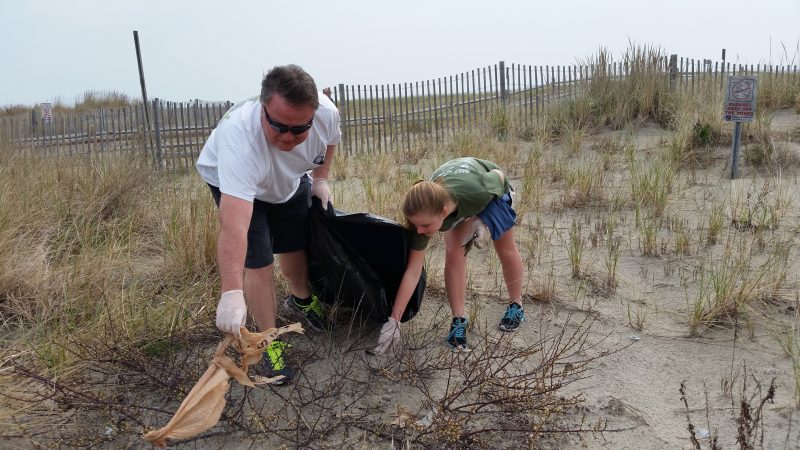
The Environmental Commission warned that plastics can be harmful to the beaches and also pose a threat to marine life. It is well known that turtles, whales and other types of sea creatures can die if they swallow plastic and their digestive systems become blocked.
Feeley pointed out that microplastics containing toxic chemicals are eaten by fish and in turn can be harmful to humans when they consume seafood.
In 2017, Feeley was the chief proponent of another environmentally-friendly ordinance, adopted by Council, that bans the mass release of balloons in Sea Isle.
The idea is to reduce the amount of plastic litter that falls into the ocean and can be fatal to sea life when the balloons deflate.

